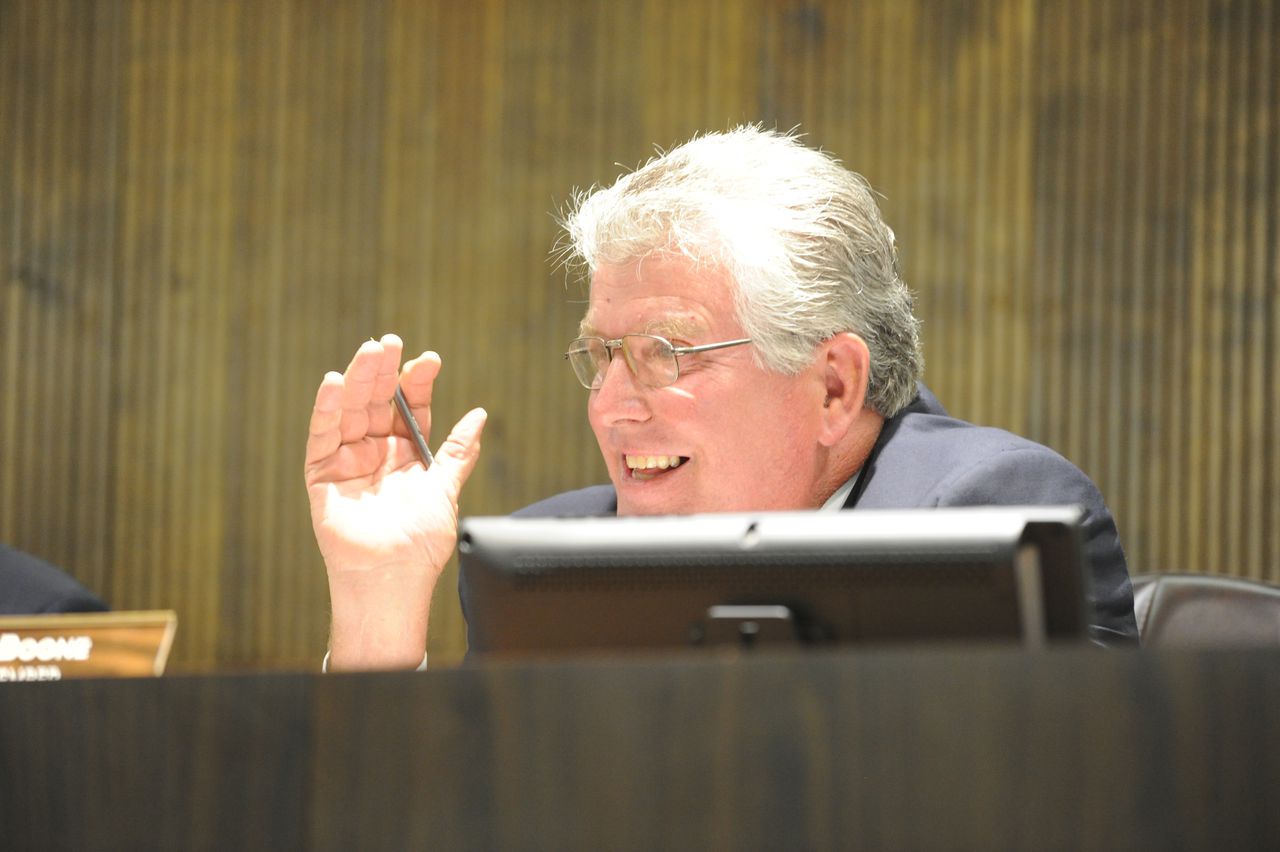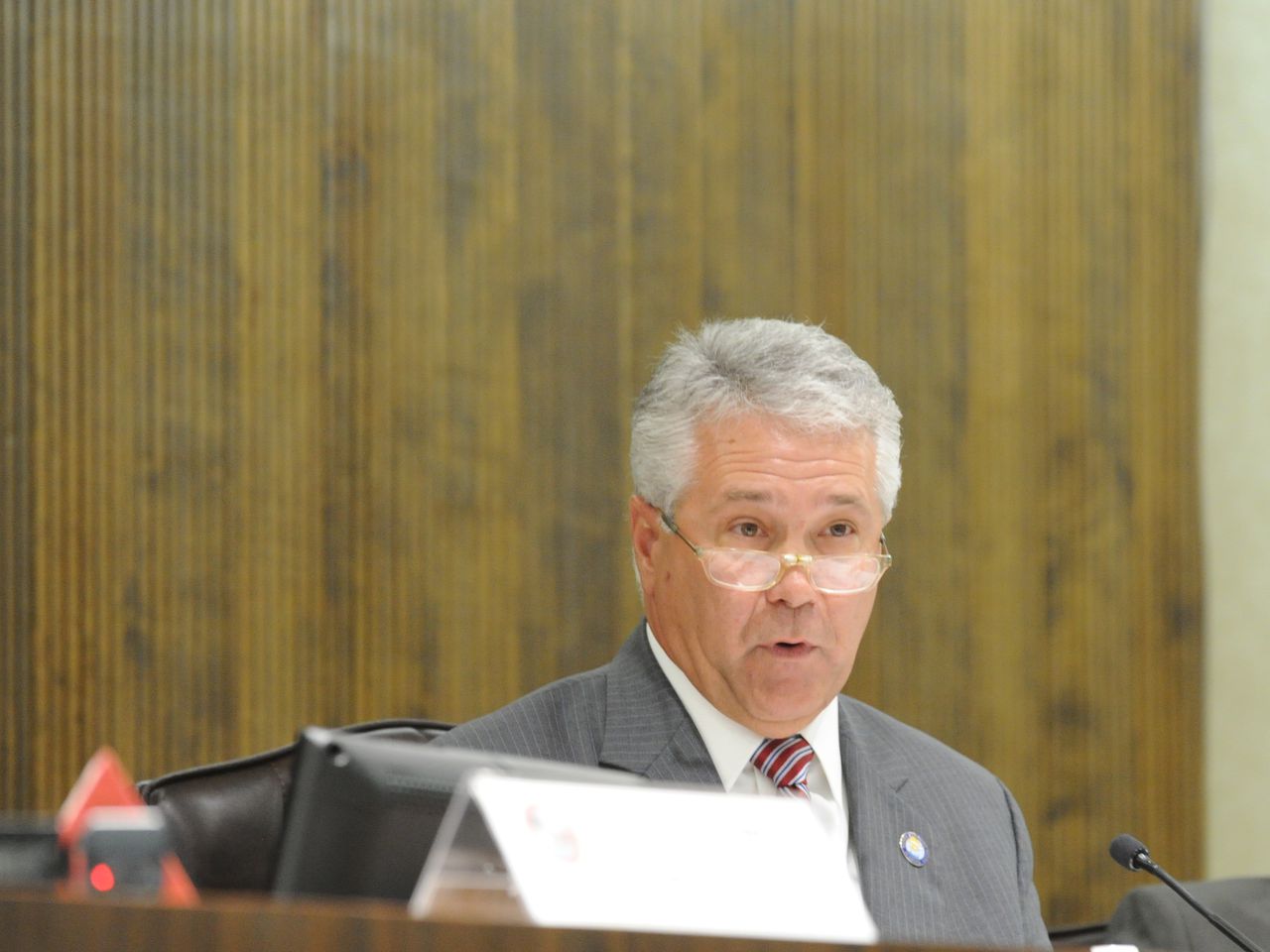Fairhope second Alabama city to say ‘No’ to hosting medical marijuana dispensary
City leaders in Daphne, Foley and Spanish Fort did not face any opposition over the potential of opening a medical marijuana dispensary within their respective cities.
“No public comments, nothing,” said Spanish Fort Mayor Mike McMillan, whose council voted last week to allow for a dispensary within city limits.
Related content:
But it’s a different story in Fairhope, less than a half-hour drive from those three cities in Baldwin County.
Some Fairhope council members said they were “inundated” with opposition over a proposed city ordinance that would allow a medical marijuana dispensary to operate within city limits.
As such, the council killed the measure on Monday night. Not one of the council’s five members agreed to bring the matter up for a vote.
Fairhope now may be only the second city in Alabama to step away from the state’s evolving medical marijuana industry that is expected to roll out next June. Pelham, on January 24, issued a proclamation that outlines several reasons why it does not want to host a dispensary.
“I think, for the most part, the council did not hear from many people in support of medical cannabis in Fairhope,” said Fairhope Mayor Sherry Sullivan, who doesn’t have a vote on the council. “They felt like they heard from a lot of folks who spoke out against medical cannabis. It doesn’t mean they can’t come back in the future (and reconsider), but I don’t see that happening now.”
Opposition and misinformation
Fairhope City Councilman Jack Burrell (John Sharp/[email protected]).
Councilman Jack Burrell said he received 25-30 phone calls and about 15-20 emails from people who opposed. Council President Jimmy Conyers said he got about two dozen calls and emails from those opposing.
“We seldom get that many phone calls,” said Burrell. “I think it made an impression on me that people took the time to make the phone calls.”
Councilman Cory Martin also said the reaction he received in recent days pushed him to back away from supporting it.
“It doesn’t matter what I agree with or disagree with, it matters what the people want,” he said. “That’s why I’m here to serve.”
Only four people spoke in opposition during the council meeting, and some of the opposition seemed to continue with misinformation about the Alabama program by linking medical marijuana to recreational use.
Others claimed the products will inadvertently get into the hands of children. One man cited a case in Virginia, in which a mother was recently charged with murder after her 4-year-old son allegedly died from consuming a large amount of THC gummies.
Council members said they were not swayed, in recent days, by misinformation or issues unconnected with Alabama’s evolving medical marijuana program.
“I think that some people may be confusing the law with recreational (use),” Burrell said. “Some people might be thinking that you can smoke products as opposed to something encapsulated. But the vast majority of people who contacted me were very clear they were opposed to a medical marijuana dispensary.”
He added, “I think they were concerned with the fact that they could use a dispensary to obtain what is deemed as medical use and then have it used for recreational purposes and how that might filter (throughout the community).”
Brittany Peters, a spokesperson with the Alabama Medical Cannabis Commission – the organization involved with implementing the state’s medical marijuana program – said while they are “always concerned about inaccuracies and misinformation,” the focus is to build the program that is expected to roll out in June 2023.
Peters pointed to Alabama state law that reads, “it is not the intent of this chapter to provide for or enable recreational use of marijuana in the State of Alabama.”
“Therefore, AMCC’s regulatory and enforcement authority is to oversee a program that meets with this legislative intent,” Peters said.
Quiet elsewhere
City officials reached on Tuesday denied there was a single interest group or church effort assembled in recent weeks to defeat the ordinance. The pushback in Fairhope was notable given the lack of any opposition to similar ordinances in nearby cities.
Daphne Mayor Robin LeJeune said he only received one email after the council passed its ordinance that was in opposition. He added, “the people I personally spoke to before were supportive.”
McMillan, in Spanish Fort, also said he got only one email in opposition and that it arrived after the council voted.
In Foley, Mayor Ralph Hellmich said his city “worked very hard explaining” the state law and emphasized that Foley was not “the permitting body.”
Hellmich noted that a physician in Fairhope, who spoke out against the issue during a meeting earlier this month, was able to turn the “discussion into anti-legalizing pot. The discussion, at that point, was confusing and away from the medical issue.”
Dr. Steven Wittmer, who spoke out against a dispensary in Fairhope during the council’s meeting on October 10, was not at Monday’s meeting. He said earlier this month that medicinal marijuana will filter out into the general public and compared its use to the opioid crisis that is leading to record-setting drug overdoses nationwide.
Burrell said he was unaware of an organized effort by physicians or churches to have the ordinance defeated in Fairhope. Sullivan said that one church pastor reached out to the city to express opposition.
Burrell said he could understand why people are concerned.
“We do know that people will abuse any kind of prescriptions and pain medications and opioids has led to an epidemic of overdoses in this country,” he said. “I’m not suggesting that (medical marijuana) will lead to that, but it’s not an outlandish thought to say people will use that avenue to again access to medical marijuana for recreational purposes, especially if they go under the guise of pain and that is probably hard for a physician to disapprove.”
Hiding and depriving

Fairhope City Councilman Kevin Boone speaks during the council’s meeting on Monday, June 24, 2019. (John Sharp/[email protected]).
Even if the council had approved the ordinance, the issue would have gone to the city’s planning commission. City officials said that a future dispensary would likely have been restricted to a particular zoning district near medical offices and Thomas Hospital.
Councilman Kevin Boone said that effort was akin to “hiding” the dispensary.
“I’m not voting for something we are trying to hide,” he said. “I feel this is wrong.”
Council members pointed out that if someone wanted to obtain a prescription for medical marijuana, they could travel to Foley or Daphne to obtain it only if one of those cities receives a license to operate a medical marijuana dispensary.
It’s up to every city and county government whether they want to have a medical marijuana dispensary within their jurisdiction. Ordinances, voted on by cities, and resolutions, voted on by counties, are needed before the Alabama Cannabis Commission allows a dispensary or an integrated facility to operate within a jurisdiction’s boundaries.
Councilman Jay Robinson said he did not believe Fairhope residents would be “deprived” of obtaining legal medical marijuana by noting the prospects of operations in the nearby cities.
There is no guarantee that a medical marijuana operation will come to Baldwin County. Alabama state law allows for 37 dispensaries to operate statewide.
As of Monday, there were 607 requests to operate a medical marijuana facility in Alabama. Of those applicants, 239 were for the operation of a dispensary and another 133 for an integrated facility (which would also include a dispensary). Other applications connected to the program were for cultivator, processor, secured transporter, and a state testing laboratory.
Applicants will have until December 30 to file an application. The commission is then set to vet the applicants next year ahead of a vote to reward licenses at its June 12, 2023, meeting.
None of the dispensaries will be allowed in cities that do not adopt an ordinance to allow for one. As of Tuesday, 18 cities and four counties have voted in support of hosting a dispensary.
That list includes some of Alabama’s largest cities like Birmingham, Tuscaloosa, and Montgomery. Huntsville city officials could vote on their ordinance on Thursday.
Fairhope won’t be one of them, thanks to a small but vocal group of residents.
“If you talk about a city of 24,000 residents, and you hear from 10 or 15 people, that is not the majority but it’s the ones who took the time to reach out to the council members,” Sullivan said. “You might hear from one who is in favor of it, but it was the vast majority (of those who reached out to elected officials) who were against it.”
